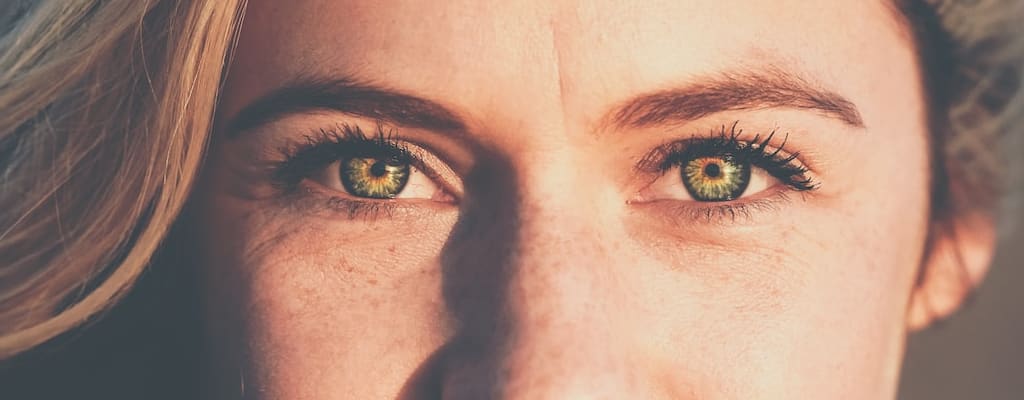all eyes and ears: Idiom Meaning and Origin
What does ‘all eyes and ears’ mean?
The idiom all eyes and ears means to be fully attentive and focused, giving complete attention to what is happening or being said.

Idiom Explorer
The idiom "listen up" means to pay attention or give one's full attention to what is being said or done.
Listen up, a commonly used idiom in the English language, has its roots in the early 20th century. This phrase is used to capture someone's attention and urge them to pay close attention. The exact origin of this idiom is unclear, but it is believed to have originated in the military context during times of war.
The idiom "eye up" means to look at or observe someone or something with interest or desire, typically in a romantic or sexual way.
The idiom "eyes on the prize" means to keep one's focus and attention on achieving a goal or desired outcome in order to be successful.
Eyes on the prize is an idiom that originated in the United States during the mid-20th century. It is a metaphorical expression used to encourage focus and determination towards achieving a desired goal. The idiom emphasizes the importance of keeping one's attention fixed on the ultimate objective, even when faced with obstacles or distractions.
The idiom "eye of the beholder" means that beauty or value is subjective and can vary from person to person, as different people have different perspectives and opinions.
The idiom "everybody and his mother" means that a lot of people, and perhaps even more than necessary, are involved in a certain situation or event.
First, let's take a look at the idiom "everybody and his mother." This colloquial expression is commonly used in American English and is a variant of the phrase "everybody and their mother," which has a similar meaning.
The idiom "easy on the eye" means visually attractive or pleasing to look at.
The idiom "ear to the ground" means to be attentive and aware of what is happening or about to happen in a particular situation or context.
The idiom "close one's eyes" means to ignore or overlook something intentionally, often to avoid facing unpleasant or uncomfortable truths or situations.
The idiom "close one's eyes" has a straightforward and literal meaning of shutting or covering one's eyes. It is often used in various contexts to describe the act of physically closing one's eyes, but it also has a figurative connotation.
The Astonishing Origin
The idioms "all eyes" and "all ears" are closely related to the idiom "all eyes and ears." These idioms, like "all eyes and ears," represent the idea of being fully attentive and receptive. When someone is described as being "all eyes," it means they are giving their complete attention and focusing their gaze on something. Similarly, when someone is described as being "all ears," it means they are fully listening and paying close attention to what is being said.
The idiom "all eyes and ears" combines these two senses – sight and hearing – to convey a sense of heightened observation and attentiveness. It suggests being fully present and engaged, actively observing and listening to gather as much information as possible. By combining these two idioms into one expression, "all eyes and ears" emphasizes the importance of being fully attuned to one's surroundings and paying attention to both visual and auditory cues.
The origins of the idiom "all eyes and ears" can be traced back to different aspects of human experience. One possible origin is rooted in the world of theater and performance. In the early days of theater, actors had to rely on their vocal projection and exaggerated gestures to ensure that they were heard and understood by the audience. The idiom "all eyes and ears" could have emerged in this context to describe an audience that was fully engaged, watching intently, and listening attentively to every word and movement on stage. Over time, the phrase expanded beyond the theater world and became a part of everyday language.
Another possible origin of the idiom relates to our everyday experiences as individuals. Our eyes and ears are two of our primary senses, allowing us to gather information about the world around us. Being "all eyes and ears" could simply mean being fully present and receptive, taking in all available sensory cues to better understand and navigate our surroundings. This interpretation aligns with the idea of being alert, attentive, and attuned to the nuances of our environment.
The idiom "all eyes and ears" is commonly used in contexts where being vigilant, watchful, and attentive is crucial. For example, one might say that a detective needs to be "all eyes and ears" when investigating a crime scene, emphasizing the need for keen observation and acute listening skills. Similarly, during a business meeting or an important presentation, participants may be encouraged to be "all eyes and ears" to ensure they don't miss any crucial information or insights.
The idiomatic expression "all eyes and ears" is also frequently used in situations when someone wants to convey their undivided attention and interest. When a teacher says to a student, "I'm all eyes and ears," it signifies that they are fully invested in the student's words and ready to listen and provide guidance. Similarly, in a conversation between friends, saying "I'm all eyes and ears" communicates a genuine desire to listen and understand the other person's perspective.
The idiom "all eyes and ears" encapsulates the idea of complete attentiveness and active engagement. Its origins might lie in the world of theater or could be rooted in our fundamental human experience of using our senses to better understand the world. This versatile expression is used in various contexts to emphasize the importance of being fully present, observant, and receptive to information. By being "all eyes and ears," we can enhance our understanding, foster meaningful interactions, and uncover hidden details or truths.
Example usage
Examples of how the idiom "all eyes and ears" can be used in a sentence:
- She was all eyes and ears during the lecture, taking notes and paying close attention to every word.
- The children sat quietly, all eyes and ears, as their teacher read them a captivating story.
- The detective walked into the suspect's house, being all eyes and ears, making sure to observe any potential clues or suspicious behavior.
More "Listening" idioms

